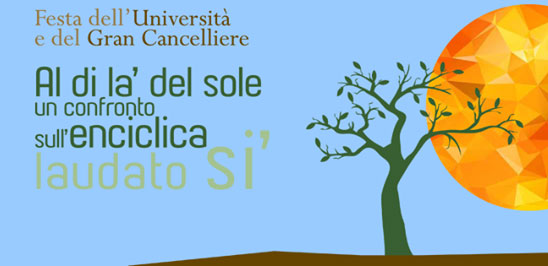
Pope Francis’s encyclical letter Laudato Si’ – On Care for our Common Home was released to the public seven months ago. A lot has happened in the interim. Most important was an ambitious new global climate agreement secured in Paris in December, welcomed and pushed for by the British government, at which 180 countries representing 95% of global emissions committed to reduce their national emissions. Without doubt, the Pope’s encyclical helped to set the stage for that agreement, inspiring action through its clarion call for urgent global solutions.
I attended an event this week at the Pontfical Antonianum University – the academic home in Rome of the Franciscans – dedicated to Lauadato Si’. This was an appropriate venue, as the influence of St Francis of Assisi soaks through every pore of the encyclical, from the opening invocation of his Canticle of the Creatures to the final prayer. Speakers at the event reminded us of the practical moral aspect of Pope Francis’s call for action. He does not ask, ‘what should governments do?’ Instead, he asks, ‘what can we all, as individuals, do?’ At base is the Pope’s recognition that, firstly, human action has had an impact on global warming and damage to the planet, and, secondly, that we are all in it together. Both insights require each of us to take responsibility. UN Secretary-General Ban Ki-Moon said in December 2015 that “climate change is a moral issue that requires a respectful dialogue with all parts of society”.
It’s not easy. The US ambassador to the Holy See told the Antonianum gathering that meeting our commitments requires us “to break old habits”. Part of that is understanding the Pope’s intuition that we cannot tackle the impacts of climate change without recognising the interconnections between environmental damage to the planet, poverty, marginalisation and insecurity. Laudato Si’ was an urgent call ahead of COP21. But it was also looking at the longer term, and the broader condition of society.
The Prime Minister’s speech on 11 January about life chances for the poorest in the community is a good example of the interconnectedness of the challenge. Security, poverty, education, the economy and housing policy are all linked. They are all crucial elements in the health of our environment and our society. The Pope writes in the section of Laudato Si’ dedicated to the ecology of daily life that: “Authentic development includes efforts to bring about an integral improvement in the quality of human life”. The British government’s Life Chances Strategy is designed to do just that, helping the very poorest and most vulnerable in our community. That, too, is part of the Pope’s Laudato Si’ vision, and I recommend reading it again for that wider message, away from the context of the frenetic months leading up to COP21.
